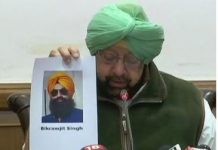 August, it is generally said, is the summer’s last messenger of misery. It all started with Gorakhpur’s BRD Medical College hospital, where about 70 children died in a week due to shortage of oxygen cylinders. And if Uttar Pradesh Health Minister Siddharth Nath Singh is to be believed it was not due to the lack of medical supplies. “Many children die in the month of August every year at the Uttar Pradesh district’s state-run hospital,” he said.
August, it is generally said, is the summer’s last messenger of misery. It all started with Gorakhpur’s BRD Medical College hospital, where about 70 children died in a week due to shortage of oxygen cylinders. And if Uttar Pradesh Health Minister Siddharth Nath Singh is to be believed it was not due to the lack of medical supplies. “Many children die in the month of August every year at the Uttar Pradesh district’s state-run hospital,” he said.
Then came floods. More than 850 people were reportedly killed in six flood-affected states in the past month. Nearly 400 people were killed in Bihar alone over the past few days and thousands were living in relief camps away from their inundated homes. In the neighbouring Uttar Pradesh, around 100 people died when floods swamped nearly half of the vast state of 220 million people. The floodings have not only made thousands of people homeless but also will lead to low farm output and rise in unemployment.
There were two train derailments last month within a span of five days in Uttar Pradesh. While the Kaifiyat Express derailment resulted in injuring 100 passengers, the Utkal Express accident killed nearly 23, raising yet again the safety concerns while travelling by train.
In another development, more than 30 people were killed and 350 injured in clashes in northern India after a controversial spiritual leader was found guilty of raping two of his followers. Many states witnessed violence and were put on high alert after the flambouyant spiritual leader Gurmeet Ram Rahim Singh was convicted in a case that dates back to 1999. An interesting message was sent to me on Whatsapp. It said, “When a rape accused is not arrested we alight a candle and if a rapist is arrested, we put the city on fire.”
But all was not negative in August. The country’s apex court banned the 1,400 year-old practice of instant ‘triple talaq’ among Sunni Muslims and set it aside on several grounds including that it was against the basic tenets of the Holy Quran and violated the Islamic law Shariat. The verdict, in general, was welcomed by the masses as it gave more power to women.
But the historic development of the month was the Supreme Court’s verdict that made Right to Privacy a fundamental right. The landmark verdict will impact many sphere of life. “The realm of the fundamental right to privacy span from women’s reproductive choice and choice of food or faith to euthanasia. Neither the State nor private persons have any business to intrude,” Justice J. Chelameswar wrote in his separate judgment on privacy.
The Right to Privacy will definitely effect the outcome of several cases where aspects of Aadhaar have been challenged, with petitioners arguing that making the scheme mandatory violates Fundamental Rights. Though Union Law Minister Ravi Shankar Prasad now says that the government had always acknowledged the need for privacy, the verdict is being seen as a major setback for the government as it had earlier argued in the apex court that the Constitution does not guarantee individual privacy as an inalienable Fundamental Right.
The Privacy right verdict will definitely have an impact at ground level in urban and rural areas alike. Few weeks ago, a village in Uttar Pradesh, for example, announced a fine of Rs. 21,000 for women seen talking on the mobile phone in public — which, astonishingly, has been listed as a “crime” along with drinking, gambling and cow slaughter. The verdict will act a bridle for self-styled policymakers across the country. No doubt, August 2017 will be recalled for natural clamities, death and violence, but it will be remembered more for the judiciary’s historic role in restoring trust in liberation, freedom and justice.












